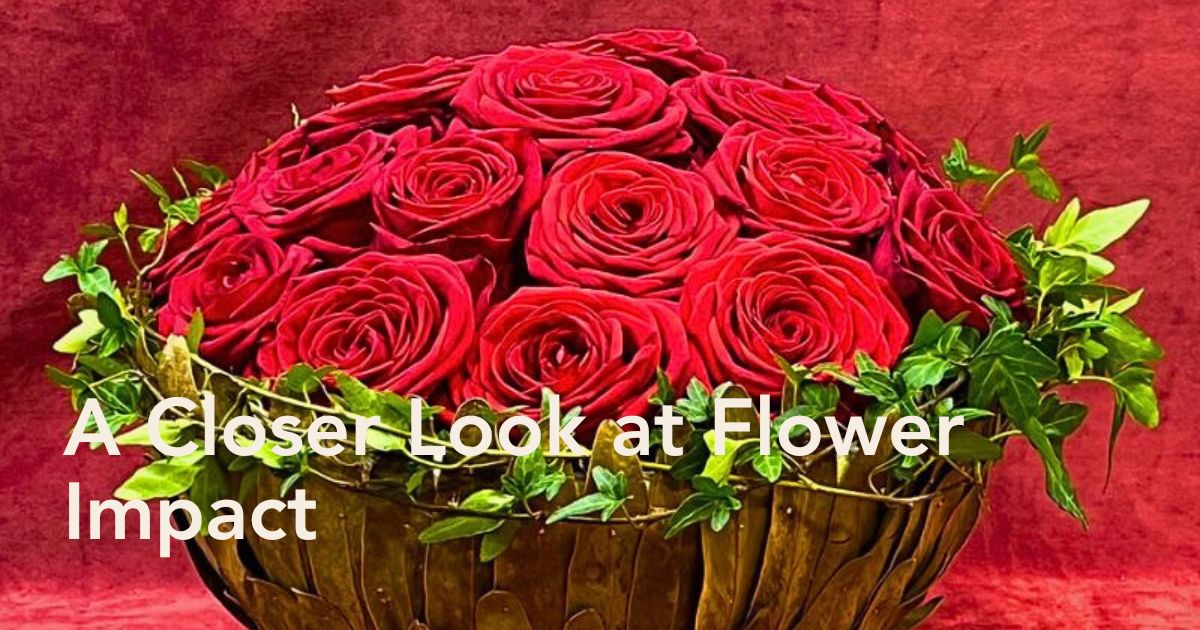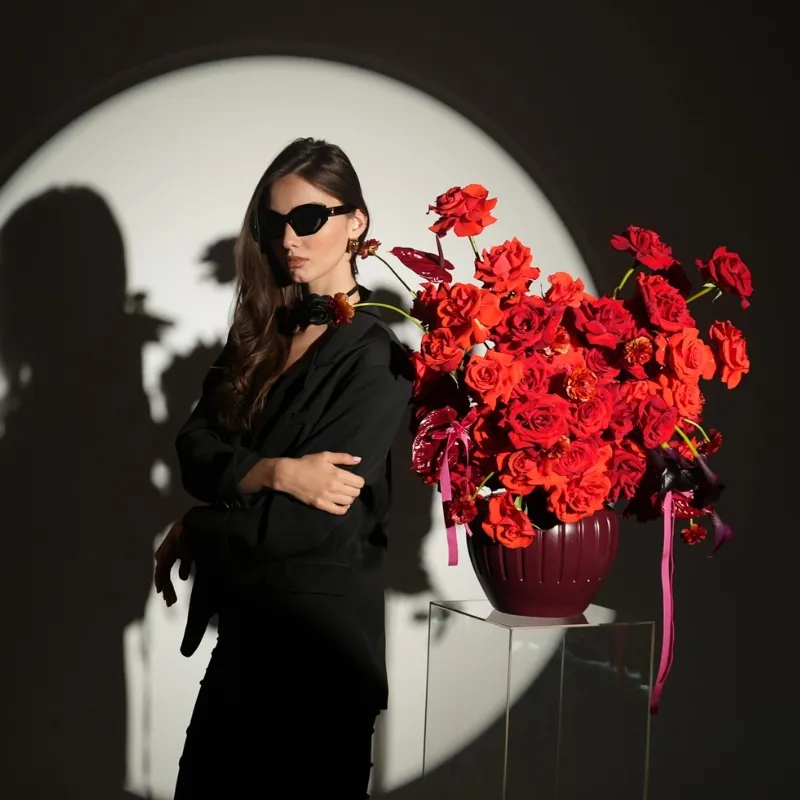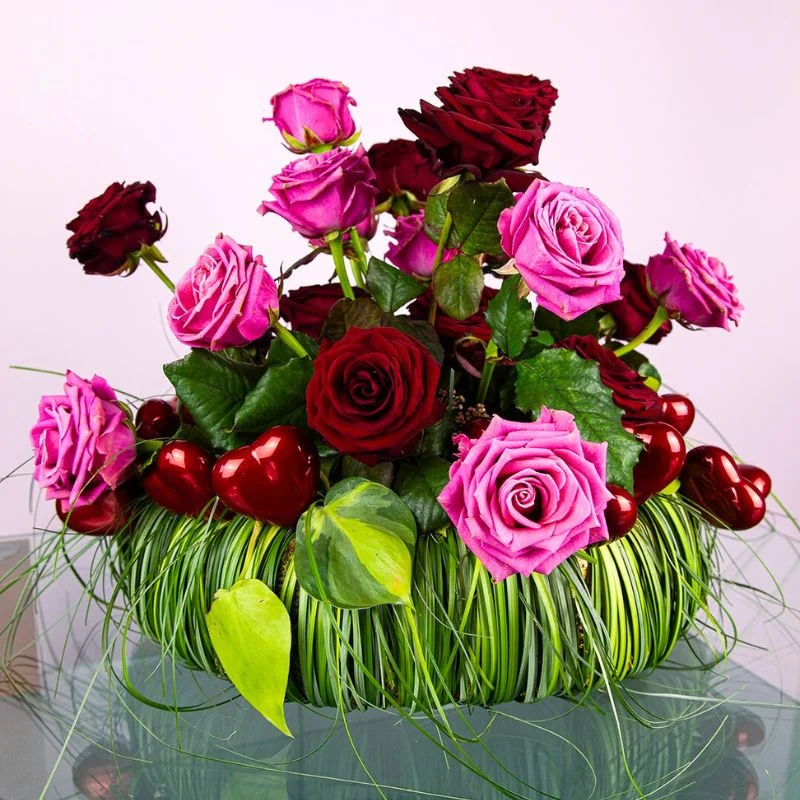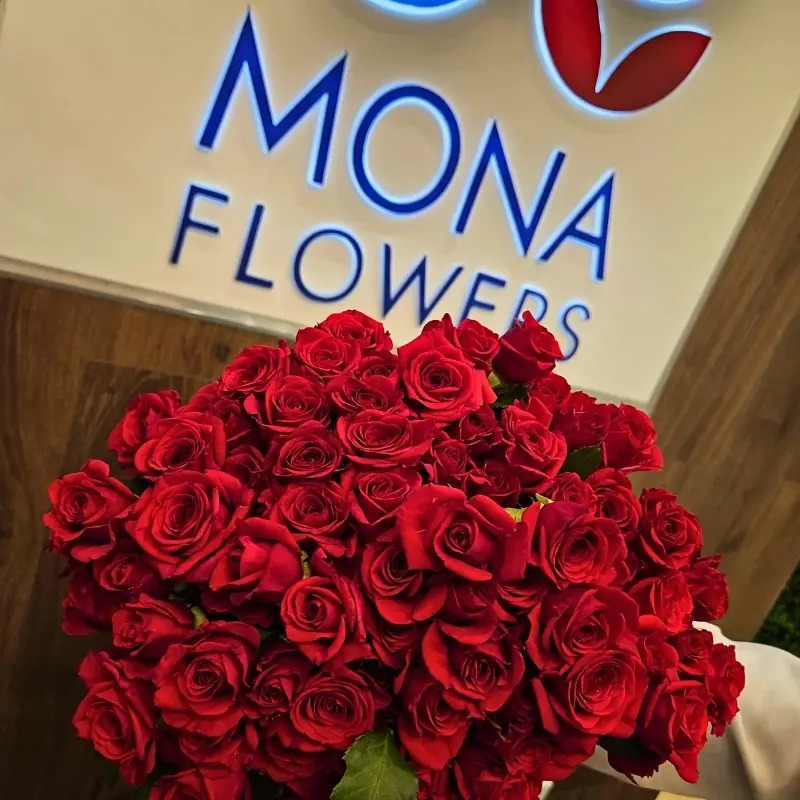Flowers appeal to every individual, regardless of age or gender. Whether flowering in gardens, gifted in a bouquet, or used to elevate a space, they have an unmatched power to transform human emotions. Among them, red roses stand out – not just for their beauty and symbolism, but for their remarkable physiological effects.
This article takes a closer look at how seeing red roses impacts the brain, body, and overall mood, with findings that support why incorporating red roses – like Red Naomi, Madam Red, Ever Red, Born Free, Freedom, Hearts, and Red Tacazzi+ – into everyday life is more than just an aesthetic choice. It's flower therapy backed by science.
The Physiological Effects of Seeing Red Roses
According to the journal Complementary Therapies in Medicine, simply viewing aesthetic red flowers such as roses has calming effects on the human nervous system. The natural color red, especially in the form of a red rose’s natural beauty, creates a visual experience that helps regulate breathing, reduce stress, and balance the mind.

As people increasingly seek wellness solutions that connect them to nature, flowers are emerging as powerful tools. In a society where workers often spend their days indoors – far from the grounding presence of greenery – red roses bring a touch of nature that can significantly improve mental well-being.
Experimental Study: Roses Stimulate Happiness
A notable study conducted at Mizuho Information & Research Institute in Tokyo investigated the psychological and physiological effects of red roses. Thirty-one male office workers were exposed to thirty unscented red roses arranged in a cylindrical glass vase for four minutes. A control group experienced no flower exposure.
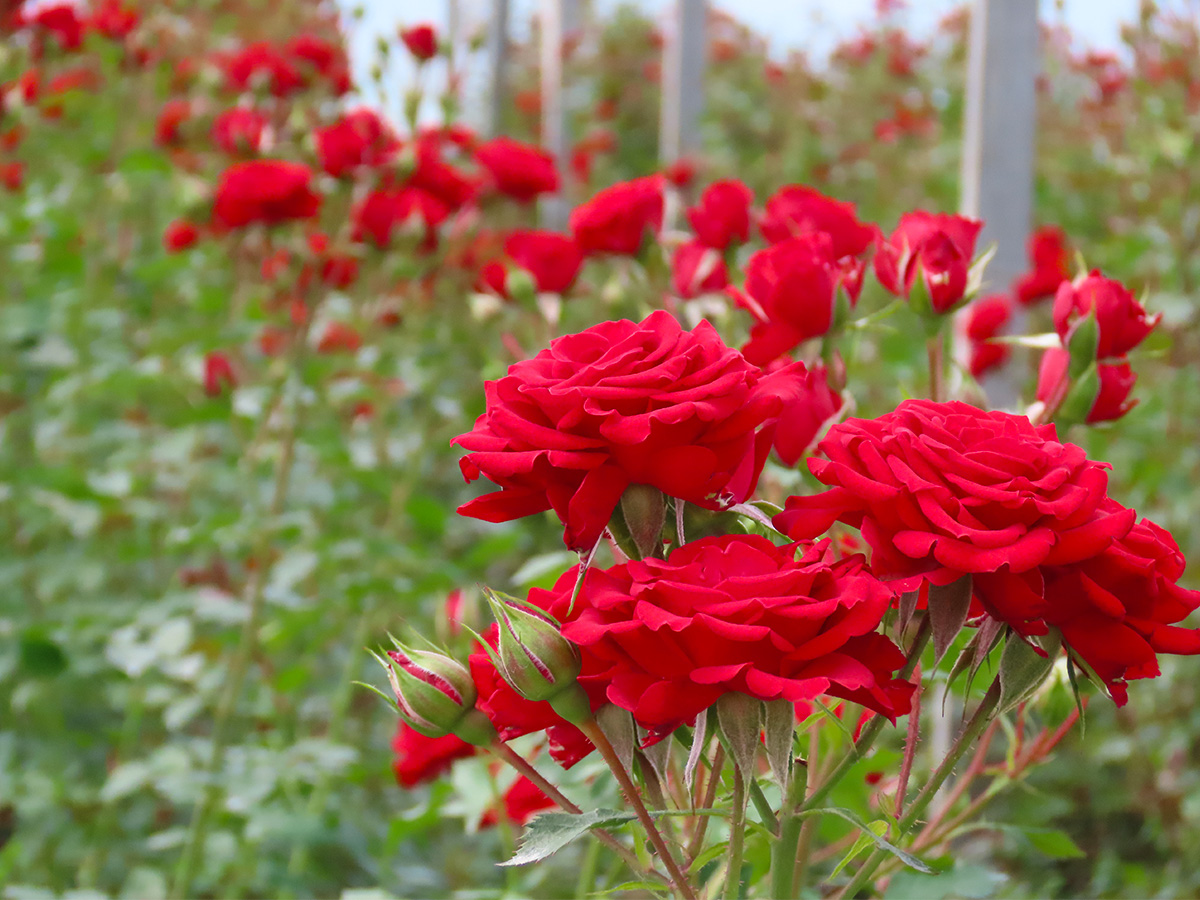
The results were striking:
- The participants who viewed roses showed a significant increase in the high-frequency component of heart rate variability, a marker of relaxation.
- They reported feeling more comfortable, relaxed, and natural.
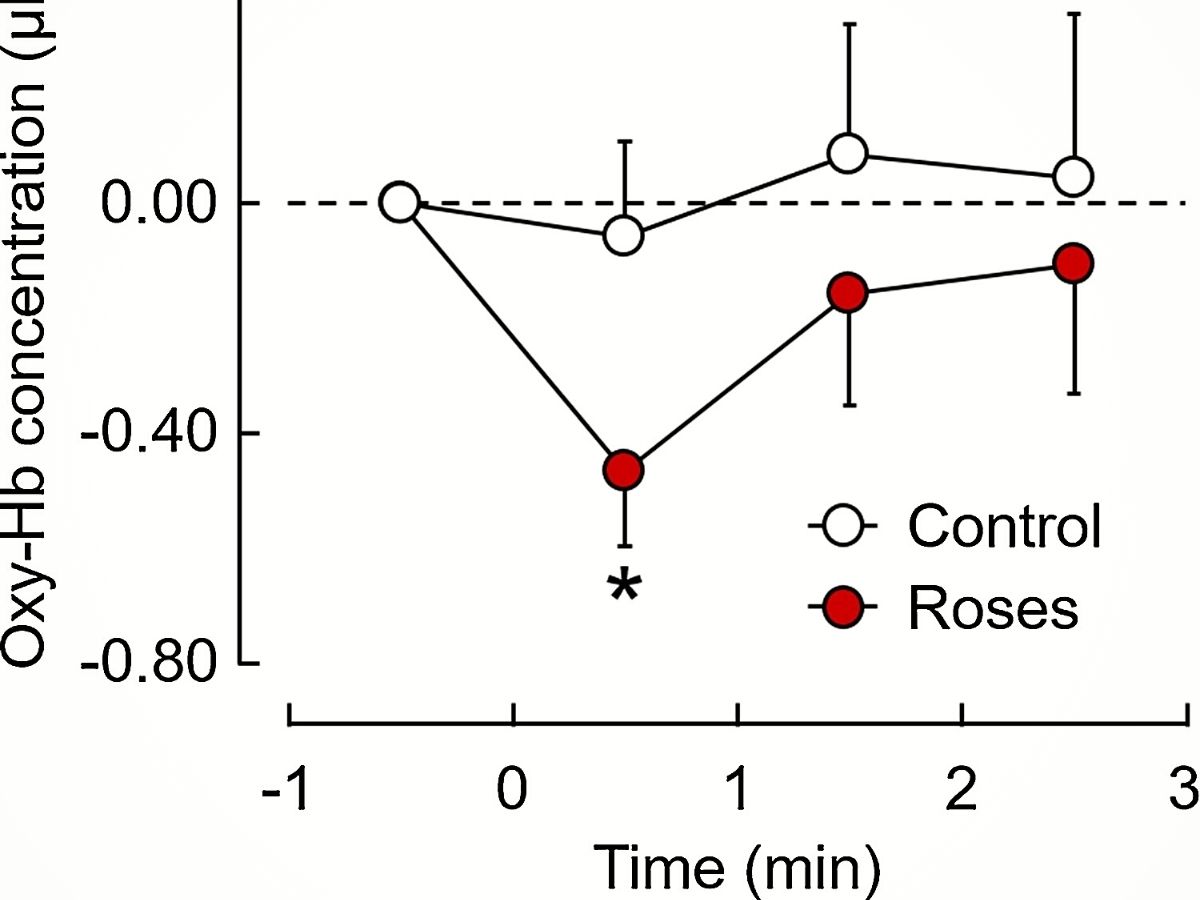
Image by Semantic Scholar
This visual stimulus of red roses' exposure activates parts of the brain associated with memory, pleasure, and calm, making roses a subtle yet effective therapeutic presence.
The Mood-Boosting Chemistry of Roses
Why does a heart red rose make you feel lighter, more joyful, and maybe even nostalgic? Because red roses don’t just look beautiful – they trigger the release of dopamine, oxytocin, and serotonin, the feel-good chemicals in your brain.

This chemical response is immediate and powerful. The moment your eyes lock onto a red rose, your brain begins to associate the color and flower with love, comfort, and satisfaction. It’s no surprise that the phrase “stop and smell the roses” exists – it speaks to how these flowers ground us in a moment of joy.
Learn more about the emotional power of roses in this National Red Rose Day article.
Why Humans React So Positively to Flowers
For more than 5,000 years, humans have cultivated flowers not just for beauty, but for their healing and symbolic value. According to Lowri Dowthwaite, a lecturer in psychological interventions at the University of Central Lancashire:
“When we're stressed, we release something called cortisol – this is the stress hormone. But engaging with flowers, smelling flowers, and being mindful with flowers can reduce cortisol levels and help you feel more relaxed.”
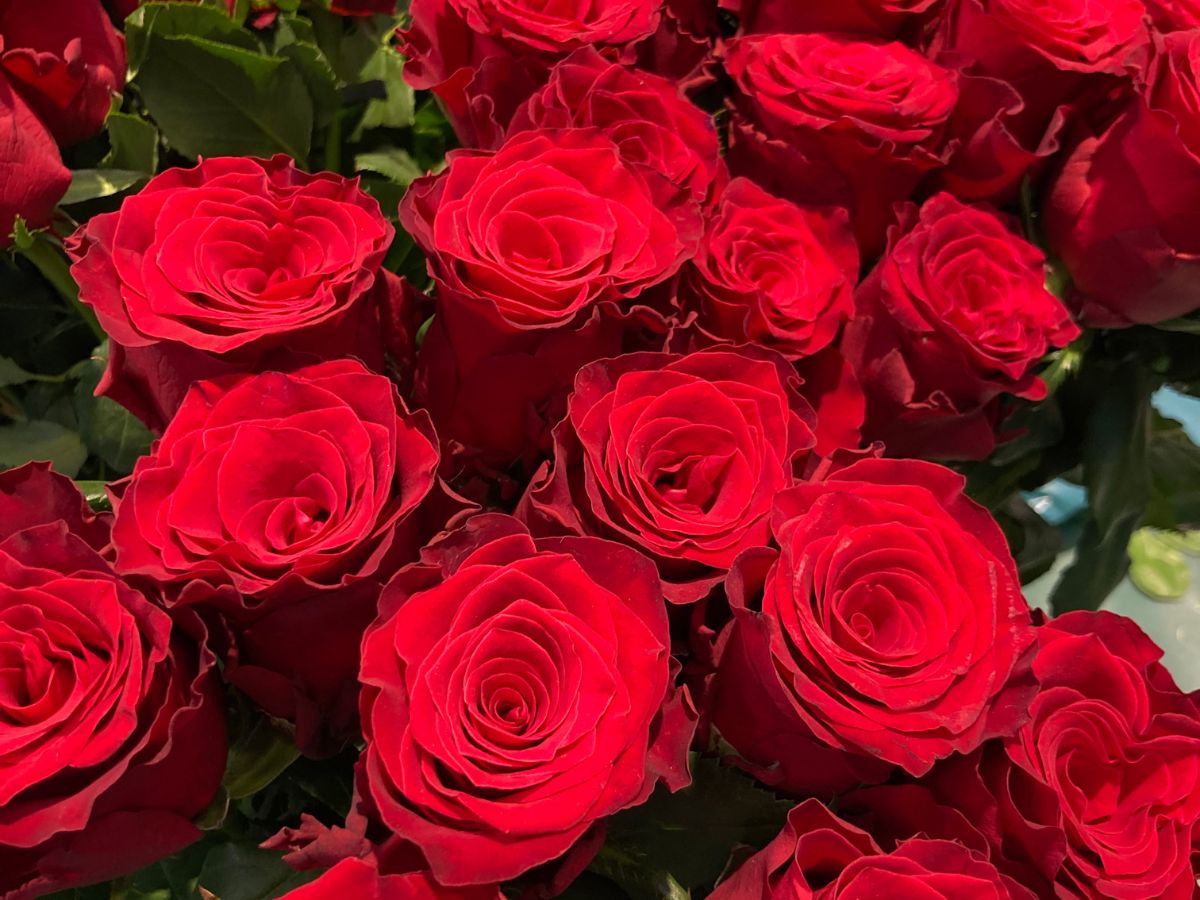
Red roses, with their deep color and classic appeal, offer more than just aesthetic pleasure. They connect us to nature and history while grounding us in the present moment.
Read how roses have evolved emotionally and culturally in this Rose Revolution piece by De Ruiter Kenya.
Red Rose Varieties That Deliver Emotional Impact
There are many aesthetic red flowers, but red roses reign supreme when it comes to emotional resonance. Here are some standout varieties making headlines:
- Rose Red Naomi – Known for large flower heads, rich velvet petals, and an intense romantic aura.
- Rose Ever Red – A globally celebrated variety with a classic red color. Read more about it here.
- Rose Born Free – A bold, expressive red rose variety, often used in editorial shoots. Discover its elegance.
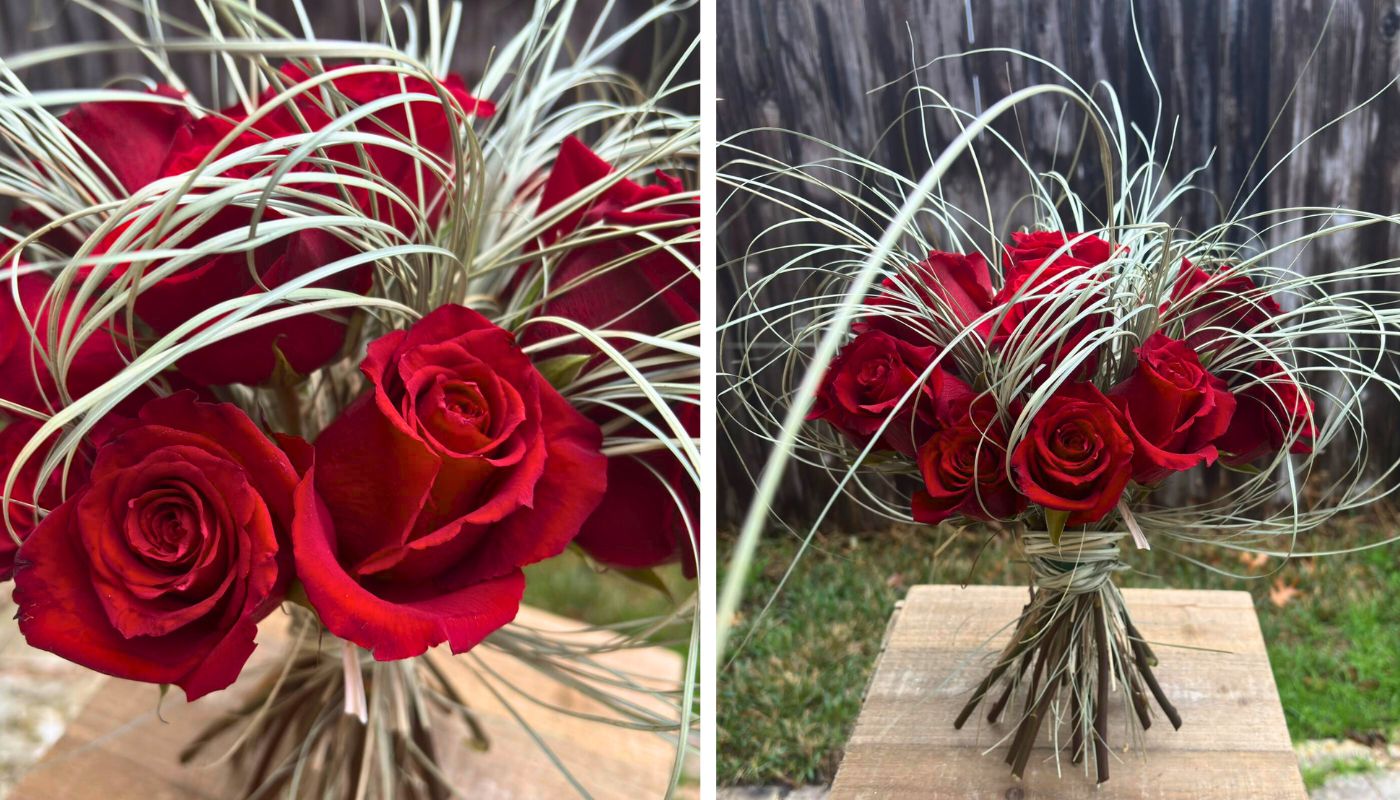
- Rose Freedom – Widely popular in floral design for its deep red tone and reliability.
- Rose Revolution – Modern and dynamic, this rose embodies a sense of strength and passion.
- Rose Red Tacazzi+ – A variety loved for its texture and versatility in premium bouquets.
- Rose Madam Red – A luxurious variety ideal for both formal and contemporary arrangements.
These varieties aren't just flowers – they’re emotional experiences made possible through years of intense research from respective breeders. Courtesy of them, you can enjoy a wide range of beautiful yet sentimental red roses you love.
Real Roses, Real Impact: Stories That Inspire
Across the globe, florists and creatives turn to red roses to elevate their work and tell powerful stories. Take floral artist Anna Loshakova’s experience, for example – she explored happiness and freedom through Porta Nova Rose Red Naomi in a recent shoot. Her work proves how deeply flowers influence not just spaces, but our inner world. Read her story here.
Red roses aren’t a cliché. They’re a universal visual language of love, confidence, and calm.

Incorporating red roses into daily life isn’t just a romantic gesture; it’s an act of emotional care. Whether placed on a desk, gifted to a friend, or enjoyed quietly at home, red roses in life are rooted in positivity, presence, and connection.
As we shift toward healthier, more mindful lifestyles, flowers, especially red roses, shouldn’t be reserved for special occasions. Let them be everyday medicine for your mind and mood.

For deeper insights on their symbolism and relevance, explore this in-depth feature on the significance of red roses.

